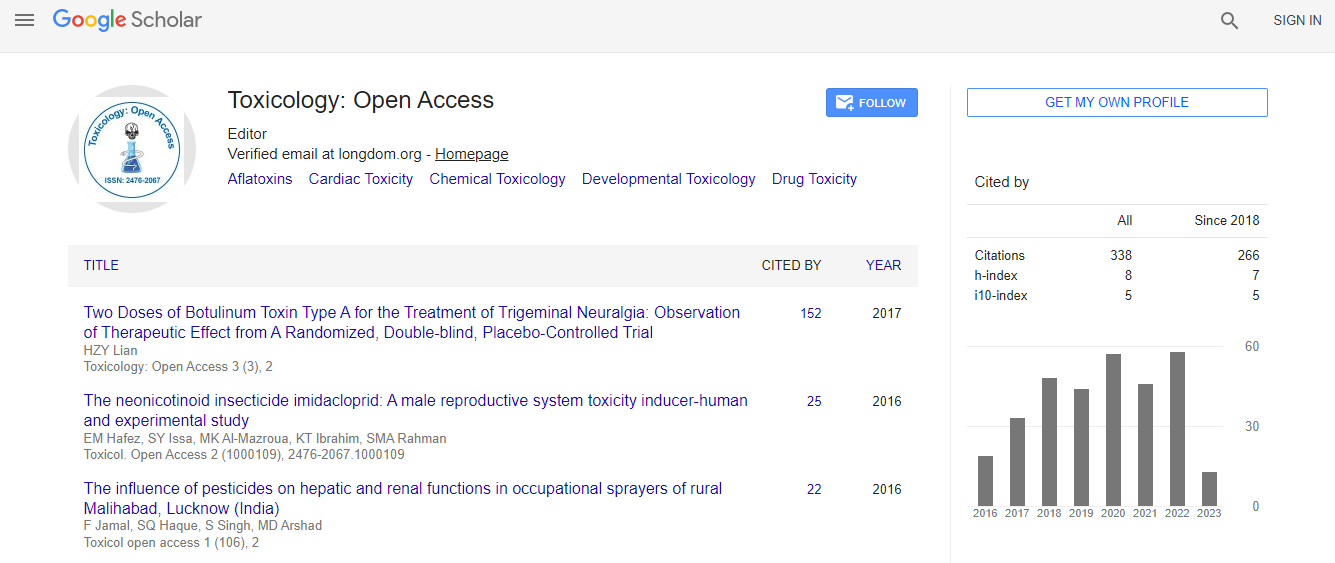Research Article
Female Gender and Hispanic Ethnicity are Associated with Increased Risk of Subacute Methotrexate Encephalopathy
Clara Y Lo1, Cynthia Campen1,2, Sandra Luna-Fineman1, Norman J Lacayo1, Paul G Fisher1,2 and Gary V Dahl1*
1Division of Pediatric Hematology/Oncology/Stem Cell Transplantation and Cancer Biology, California
2Department of Neurology, Stanford Cancer Institute, Stanford University School of Medicine, California
- *Corresponding Author:
- Dahl GV
Division of Pediatric Hematology/Oncology/Stem Cell Transplantation and Cancer Biology, California
Tel: 650-723-5535
Email: gary.dahl@stanford.edu
Received date: November 02, 2015 Accepted date: December 10, 2015 Published date: December 12, 2015
Citation: Lo CY, Campen C, Luna-Fineman S, Lacayo NJ, Fisher PG, Dahl GV (2015) Female Gender and Hispanic Ethnicity are Associated with Increased Risk of Subacute Methotrexate Encephalopathy. Toxicol open access 1: 104. doi:10.4172/2476-2067.1000104
Copyright: © 2015 Lo CY, et al. This is an open-access article distributed under the terms of the Creative Commons Attribution License, which permits unrestricted use distribution, and reproduction in any medium, provided the original author and source are credited.
Abstract
Subacute methotrexate (MTX) encephalopathy is poorly understood. We performed a historical cohort study of all cases of subacute MTX encephalopathy at Lucile Packard Children’s Hospital from January 1, 2005, to December 31, 2011. Of 272 patients receiving MTX, 21 patients were diagnosed with subacute MTX encephalopathy. Nine patients (42.9%) in this study were Hispanic females, whereas Hispanic females represented 56 of 272 (20.6%) total patients (p=0.0084). Further comparison with the 2010 California census confirms a Hispanic female predominance (p=0.032). We report a predominance of Hispanic females with subacute MTX encephalopathy, which suggests a genetic polymorphism that increases disease risk.

 Spanish
Spanish  Chinese
Chinese  Russian
Russian  German
German  French
French  Japanese
Japanese  Portuguese
Portuguese  Hindi
Hindi 